Classic Car Engine Overhaul
An Overview Of What's Needed
Once you've decided to rebuild your old car's engine, the first step should be making a plan and a budget. This will include all parts needed and any machine work you will need to outsource.
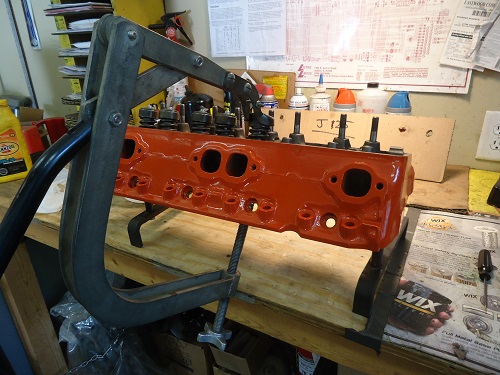
Chances are you'll be buying a some new tools. In addition to hand tools, you'll need a few specialty tools needed as well.
Read: Tools Needed For An Engine Build
NOTE: Tools are generally not included in an engine budget, because they don't go with the car if sold, and they'll likely be used again.
******************
Engine Hoist - Buy or Rent?
Unless you're working on an air-cooled VW Beetle, pulling and installing an engine requires an engine hoist.
I've always rented or borrowed one when needed. Most major auto parts stores offer two-day rentals, but you must leave a deposit, usually with a credit card.
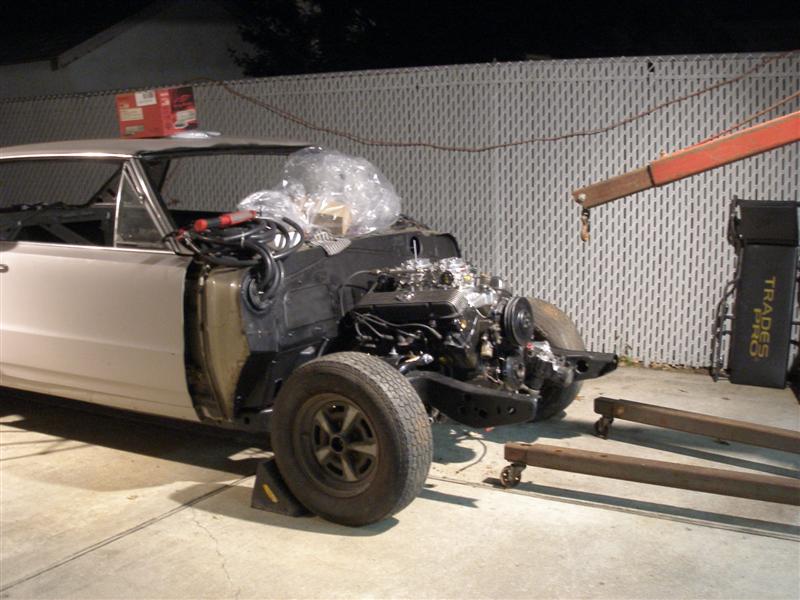
Remember that you'll need the hoist at least twice, once to remove, and again to re-install. If you think you'll be doing more than one engine removal, consider buying one.
Engine Removal
Before removing the hood, mark where the hood hinges go. This will help with re-install later. Pulling the engine out with the transmission attached is harder, so if possible, try to separate them before lifting the motor out. This will save time later on.
Once it's out, you need to mount it to an engine stand.
Engine Stand
You can rent or borrow an engine hoist for a day or two, but you'll need an engine stand for weeks, perhaps months. If it's a classic American V8, stay away from those cheap $50 specials--get a good, heavy-duty stand. A 1,000-lb minimum capacity with dual front wheels is preferred.
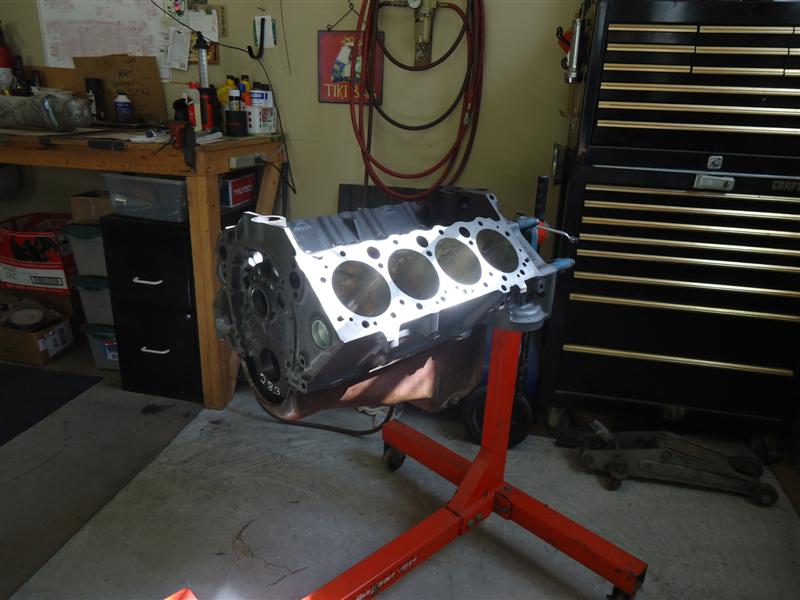
The engine stand in my garage is a Hein-Werner with a 1,250-lb capacity. I've had it for over 30 years and it's seen it's share of motors.
******************
Engine Teardown
Once securely mounted to the stand, engine teardown can begin.
To make the reassembly process easier, clean and tag everything that comes off.
TIP: Put parts in marked boxes and keep them out of the way. It may take months before the rebuild is done.
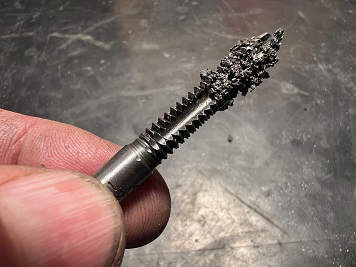
Read: Engine Bolt Thread Cleaning
******************
Top End Rebuild
Automotive cylinder heads with high-mileage often need machine shop work. Parts needed may include new valves, guides, seats, and springs.
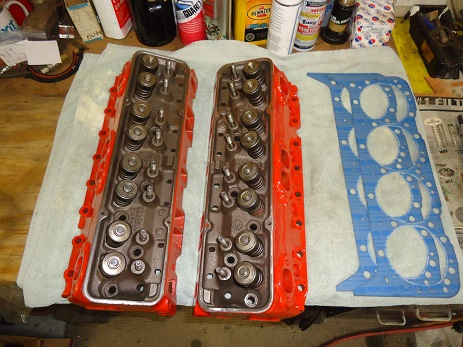
For cylinder head disassembly, a valve spring compressor is needed. You need to choose one that works with your engine.
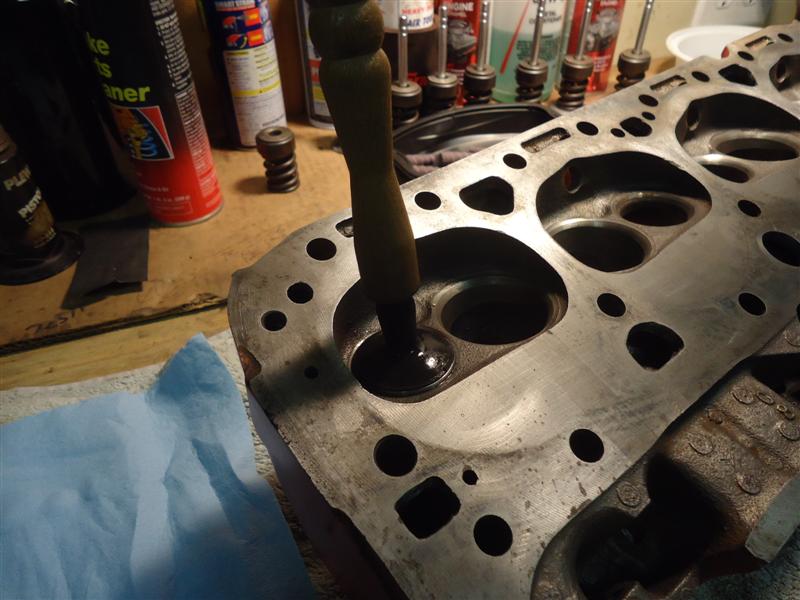
Lapping valves does not take the place of a valve job, but it does confirm whether or not one is needed.
Related Article: How To Measure Valve Guide Wear
****************
Bottom End Rebuild
Inspection and rebuild of the bottom end includes harmonic balancer, oil pan, oil pump, pistons, rods, crankshaft, and of course, the cylinder bores. Once the engine block is completely stripped, it's likely taking a trip to the machine shop.
Engine work that is frequently outsourced includes having the block chemically cleaned, new cam bearings and freeze plugs installed, and having the cylinders bored (if needed).
Measuring Main Bearing Clearance
You may have a machinist check main bearing clearances. Or you can do it yourself with Plastigage. It is an accurate, inexpensive alternative to verniers and micrometers.
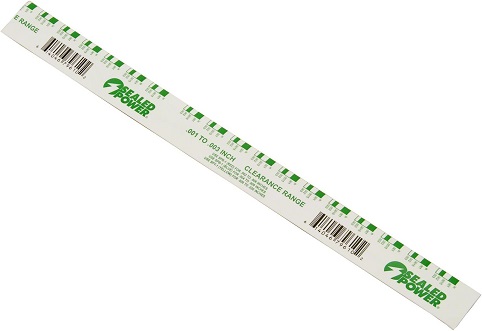
Green Plastigage Measures .001" to .003"
Red Plastigage Measures .002" to .006"
How To Use Plastigage
Carefully lay the crankshaft into the upside-down block. With the surfaces clean and dry, cut off a small piece (scissors are good) and lay it front to back on the journal. Install the main cap and torque, then remove.
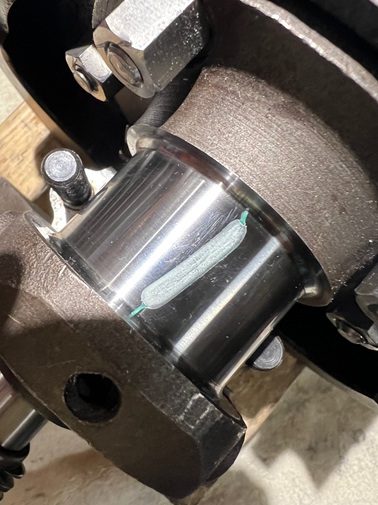
The width of the strip can be compared with the scale on the sleeve.
Before installing main caps, make sure to clean the squashed Plastigage (brake parts cleaner works well).
******************
Emissions and Exhaust
Automotive emissions have always had a bad rap with automotive enthusiasts, mainly because it was forced on us by the government and slowed down our cars and made them more complicated. But that's not why they were designed--they were designed to protect our earth, the air you and I both breathe. When I was younger I did not appreciate this, but now, being older with children of my own, I get it.
Emissions System Components
Add Oxygen Sensor To Old Car
Air Pump Function and Diagnosis
Catalytic Converter Function and Diagnosis
EGR Valve Function and Diagnosis
******************
Initial Start-Up
After a complete overhaul, initial engine start-up is both fun and scary. Using the correct assembly lube will give you some piece of mind.
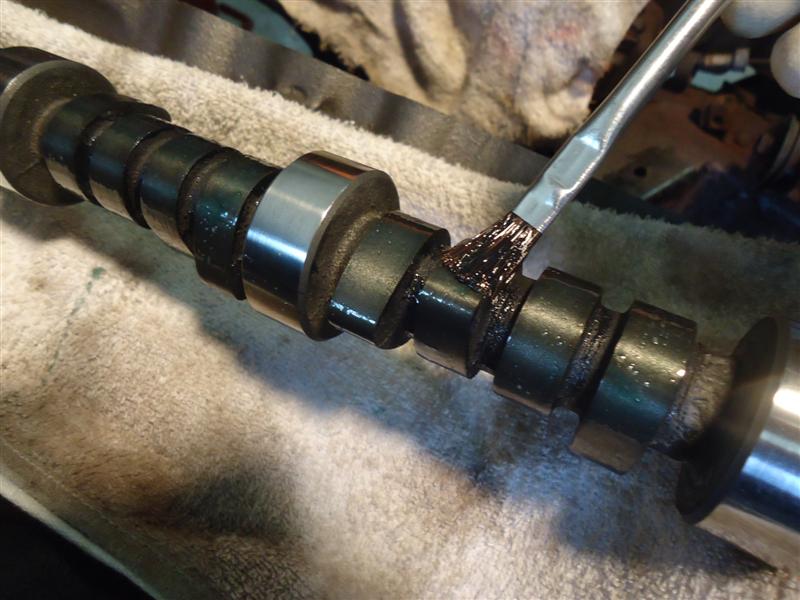
Read: Best Engine Assembly Lube
******************
Engine Swaps
Modifying a car to fit another engine, or modifying an engine to fit another car, is only the first step in an engine swap process. Once the motor's installed, a series of "mini projects" begins. This includes transmission, cooling, wiring, etc.
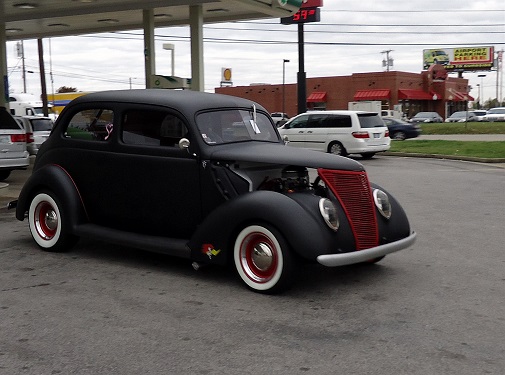
Read: Engine Swap Basics
******************
Engine Oil
Classic car engines require more anti-wear additives than modern cars. The 10W30 oil your car left the factory with is not the same 10W30 that you buy today. There are more flat-tappet hydraulic cam failures than ever before, brought about by inferior foreign lifters as well as the removal of ZDDP additives from motor oils.
Read: Best Oil for Classic Cars
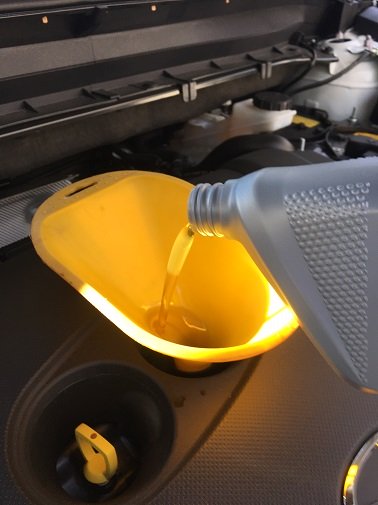
Read: Best Oil For Daily Drivers
******************
Flathead Ford V8
Although offered in several displacements, the Ford Flathead V8 remained the pretty much the same motor throughout it's production. Any part needed, including replacement blocks, are still available.
Ford Flathead V8 Identification and Specs
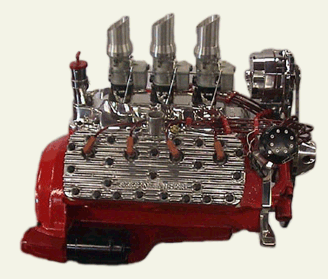
Flathead Ford Performance Upgrades
******************
Pontiac 389/400
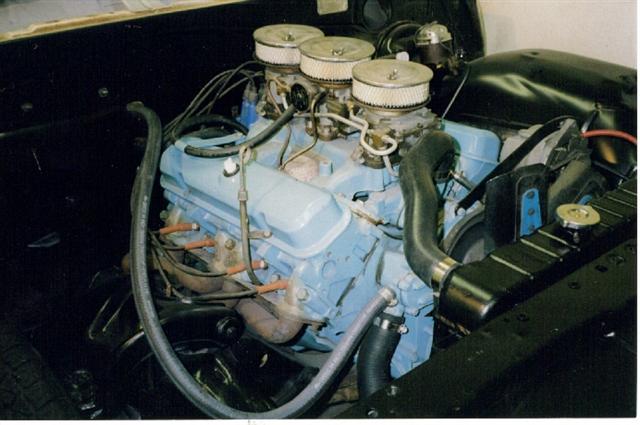
Pontiac 389 Engine Build
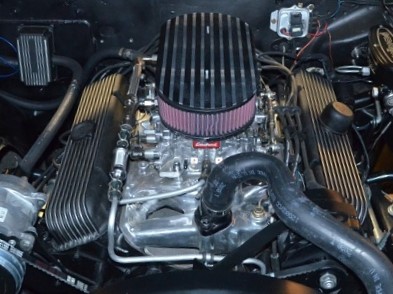
Dual Quad GTO
******************
Chevy 'Stovebolt' Six
First introduced in 1929, the Chevy overhead-valve inline six-cylinder remained in active production until 2001. That's a production span of 72 years!
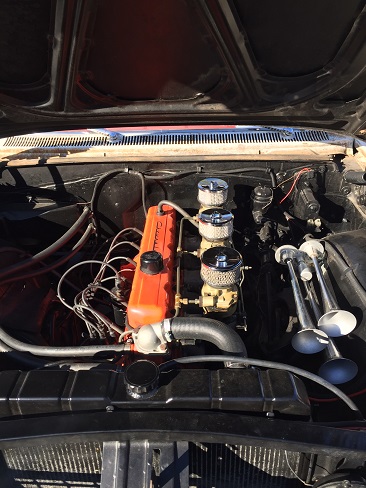
Chevy Stovebolt Six
******************
Gen-1 Small-Block Chevy
All classic American V8 engines have performance potential, but early Chevy V8's have more potential right out of the box. This is largely due to their already good breathing characteristics, coupled with the availability of excellent factory and aftermarket performance parts.
327 Chevy Build
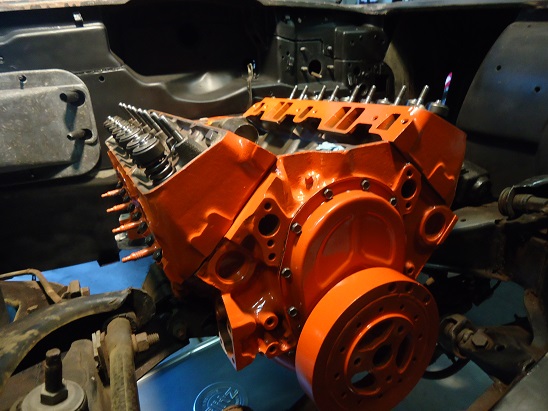
Best Heads For Gen-1 SBC
Almost Everything You Need To Know About Gen-1 Small-Block Chevy Engines
******************
Related Articles: